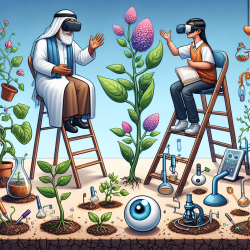The field of genetics and genomic medicine is rapidly evolving, offering new insights into the diagnosis and treatment of various genetic disorders. The research article "Genetics and Genomic Medicine in Tunisia" by Elloumi-Zghal and Chaabouni Bouhamed provides a comprehensive overview of the genetic landscape in Tunisia, highlighting both challenges and opportunities for healthcare practitioners.
Understanding the Genetic Landscape in Tunisia
Tunisia presents a unique genetic profile due to its diverse population, which includes Berbers, Arabs, Europeans, and sub-Saharan Africans. This diversity has resulted in a rich tapestry of genetic variations that can influence the prevalence and manifestation of genetic disorders.
The research underscores the importance of understanding these variations to improve diagnostic accuracy and treatment outcomes. For practitioners, this means staying informed about the latest genetic findings and integrating them into clinical practice.
Implementing Research Outcomes
Practitioners can enhance their skills by implementing several key outcomes from this research:
- Genetic Counseling: With high rates of consanguinity in certain regions, genetic counseling becomes crucial. Practitioners should advocate for premarital counseling to reduce the incidence of autosomal recessive disorders.
- Screening Programs: Establishing national screening programs for common genetic disorders can lead to early detection and intervention. This is particularly important for conditions like thalassemia and sickle cell anemia.
- Education and Training: Continuous education programs for healthcare providers are essential to keep pace with advancements in genomic medicine. This includes training on new diagnostic tools and techniques.
- Research Collaboration: Encouraging collaboration between local and international researchers can facilitate knowledge exchange and foster innovative solutions tailored to Tunisia's unique genetic makeup.
The Role of Special Education
The findings from this research have significant implications for special education. Genetic disorders often result in developmental delays or disabilities that require specialized educational interventions. By understanding the genetic underpinnings of these conditions, educators can tailor their approaches to meet the specific needs of each student.
This integration of genetics into special education not only enhances educational outcomes but also promotes a more inclusive learning environment.
Encouraging Further Research
The study highlights areas where further research is needed, such as exploring the genetic basis of less common disorders and developing targeted therapies. Practitioners are encouraged to participate in or support research initiatives that aim to fill these gaps.
By contributing to ongoing research efforts, practitioners not only advance their own knowledge but also play a vital role in shaping the future of healthcare in Tunisia.
To read the original research paper, please follow this link: Genetics and genomic medicine in Tunisia.










